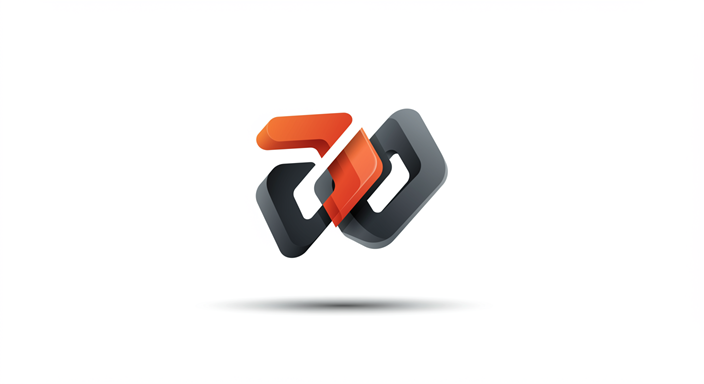Three years ago, Emily Lopez walked into the shell of an old warehouse on the east side of Phoenix, Arizona. The walls were cracked, the floors dusty, and a faded “Welcome” sign hung lopsided above the door. To most, it was forgotten—a relic of better days. But to Emily, it represented opportunity. She saw not decay, but potential. Today, that same warehouse is the thriving headquarters of Business Phoenix, a company that transformed both a derelict building and a struggling local business landscape into a beacon of innovation and hope. This is the story of how Business Phoenix rose from humble beginnings to redefine entrepreneurship in the desert—and it’s far from over.
Origins and Mission
Business Phoenix was born from a bold vision: to cultivate a vibrant ecosystem for entrepreneurs and small-to-medium enterprises (SMEs) across the Southwestern United States. Founded by serial entrepreneur Emily Lopez in 2022, the organization set out to provide more than just financial capital—it offered mentorship, strategic guidance, and a community of like-minded individuals. From day one, Business Phoenix embraced a mission of inclusivity, aiming to uplift underrepresented founders and revitalize neglected commercial neighborhoods.
Core Services and Offerings
At its core, Business Phoenix delivers a comprehensive suite of services designed to accelerate growth and sustainability:
- Incubator and Accelerator Programs: Intensive cohorts lasting 12–18 weeks, offering workshops, one-on-one coaching, and networking events.
- Seed Funding: Direct investments ranging from $50,000 to $250,000 in early-stage ventures with high growth potential.
- Workspace Solutions: Co-working spaces, pop-up retail locations, and logistics hubs tailored to local SMEs.
- Community Outreach: Partnerships with local chambers of commerce, nonprofits, and educational institutions to foster a supportive environment for aspiring entrepreneurs.
Success Stories That Speak Volumes
A key indicator of Business Phoenix’s impact lies in the narratives of its alumni. Take, for instance, Desert Bloom Cosmetics. Founded by two sisters in a one-room home office, they joined Business Phoenix’s accelerator in 2023. With mentoring support, strategic pivoting, and seed funding, they soon launched a line of sustainably sourced skincare products now sold in over 150 retail outlets across three states.
Or consider Sonoran Solar Solutions, a startup focusing on eco-friendly solar installations for low-income households. After receiving guidance on grant applications and supply chain management, the team secured a $200,000 contract with the City of Phoenix. Their success not only propelled their business but sparked conversations around renewable energy access in underserved communities.
Challenges and Strategic Responses
No entrepreneurial journey is without hurdles, and Business Phoenix has faced its share. In 2024, the global supply chain disruption hit many accelerator participants hard—inventory delays, cost overruns, and shipping bottlenecks threatened momentum. Business Phoenix responded proactively by hosting virtual workshops with logistics experts and negotiating bulk-shipping rates with regional carriers. These interventions helped participants navigate the crisis with informed agility.
Another challenge has been balancing rapid growth with intentional impact. Critics suggested that Business Phoenix risked prioritizing high-return tech startups over aligned mission-driven businesses. In response, leadership introduced a two-track application process: one focusing on tech-driven scale-ups, the other designed for mission-first social enterprises. This balanced model ensures diverse representation and impact across every cohort.
Community Impact and Strategic Partnerships
Business Phoenix plays a vital role in reinvigorating Phoenix’s commercial districts. By repurposing underutilized real estate—like Emily’s original warehouse—they’ve sparked neighborhood rejuvenation. Cafés, craft workshops, and street art now dot the landscape, driven by businesses incubated through the program.
Furthermore, strategic alliances bolster Business Phoenix’s reach:
- City Government: Collaborative grants fund technical infrastructure upgrades and small business grants targeting legacy business corridors.
- Local Universities: Intern programs, guest lectures, and joint research on regional economic development.
- Industry Mentors: Advisory boards featuring executives from finance, supply chain, marketing, and tech—providing real-world insights to founders.
Measurable Outcomes That Matter
Since its first cohort launched in early 2023, Business Phoenix has achieved impressive milestones:
- Alumni have collectively raised over $15 million in external capital.
- 18 startups have scaled to 50+ employees each, creating more than 900 total jobs.
- 90% of accelerator graduates report annual revenue growth of 25% or more.
- Local real estate occupancy in targeted zones climbed from 60% to 85%—a testament to neighborhood renewal.
A Balanced Perspective
Despite these successes, Business Phoenix is still in its early growth stages. Scaling services beyond the Phoenix metro presents logistical and cultural challenges. Should they expand to cities like Tucson or Albuquerque? Or prioritize deepening impact locally before branching out?
Additionally, striking the right balance between investor returns and mission-aligned goals remains ongoing. Some alumni push for rapid monetization strategies while others emphasize social impact first. The organization continues to refine its governance structure to ensure equity and sustainability for all stakeholders.
The Road Ahead
Looking forward, Business Phoenix has outlined a multi-phase expansion roadmap:
- Phase One: Launch satellite incubator hubs in Flagstaff and Tucson by late 2025.
- Phase Two: Pilot virtual accelerator tracks and nationwide cohorts for remote entrepreneurs.
- Phase Three: Establish a $50 million regional investment fund co-sponsored by local pension and philanthropic institutions.
The goal? To build a Southwest-wide network of empowered startups and rejuvenated communities—anchored in the ethos that the Phoenix spirit is about rebirth, resilience, and collective growth.
Conclusion
From a dusty warehouse to a regional powerhouse, Business Phoenix embodies the metamorphosis possible when visionary leadership, community focus, and bold entrepreneurship collide. It has created ripples in neighborhoods, markets, and lives—never losing sight of its mission. As it prepares to take flight into neighboring cities and a broader national presence, it faces both opportunity and scrutiny. Can Business Phoenix scale its model responsibly while retaining its soul—and what might its next chapter look like for the entrepreneurs and communities it serves? We’d love to hear your thoughts—leave a comment below and join the conversation!

